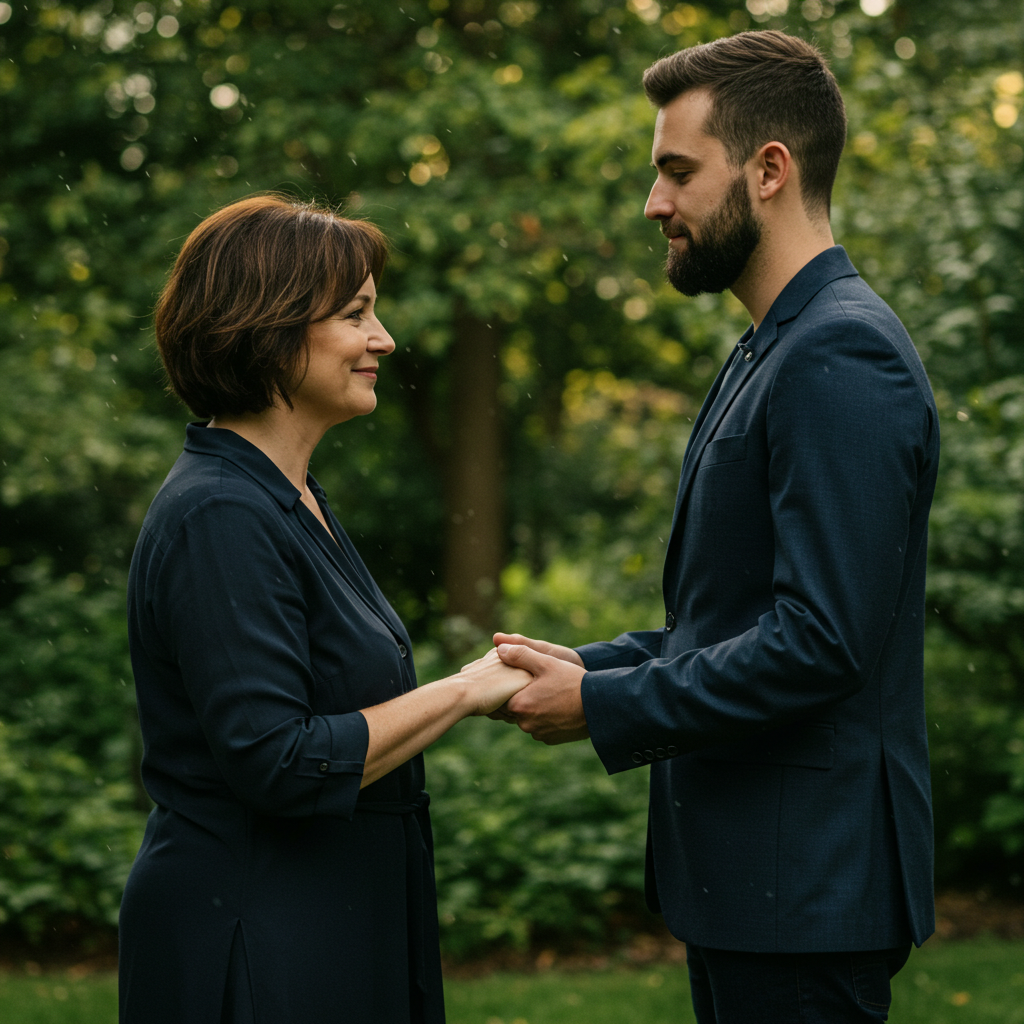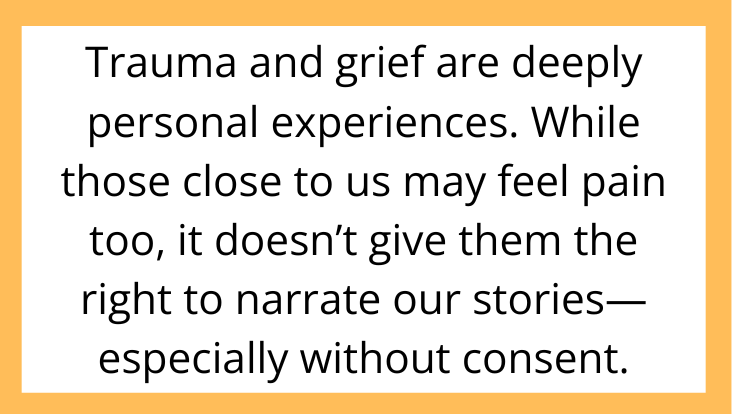AITAH for Telling My Sister to Stop Using My Miscarriage as Her Sob Story?
It started with pain, grief, and a deep loss—something I thought I could share with my family without it being turned into gossip. But what happens when someone you trust takes your most vulnerable moment and turns it into their emotional currency?
That’s the situation I found myself in, and now I’m left wondering: Am I the villain for calling her out?
The Background: A Loss That Wasn’t Hers to Share

I (28F) experienced a miscarriage earlier this year. It was devastating. My partner and I had been trying for over a year, and finally, when we saw those two lines, we were over the moon. But joy turned into heartbreak just a few weeks later.
Naturally, I shared the news with my family. I needed support, love, and space to grieve. My sister (31F), let’s call her Mia, was sympathetic at first. She brought over food, checked in with me regularly, and told me to “take as much time as I needed.”
But then things got weird.
The Problem: My Grief, Her Spotlight

It started when a mutual friend mentioned, “I heard about what happened… Mia told me. I’m so sorry.” I was stunned. I hadn’t told this friend. I didn’t even know Mia had talked to her.
I asked Mia about it. She brushed it off.
“I was just explaining why you’ve been distant lately. I didn’t go into detail.”
But she did. Because a few weeks later, another acquaintance reached out with specifics—details I had never shared publicly. I confronted my sister again, and this time, she got defensive.
“You’re being dramatic. It’s not like I’m posting about it online.”
Yet, what she was doing felt worse. She was telling people—using my miscarriage to bond with others, to appear empathetic, to draw sympathy for herself.
The Breaking Point

The final straw came at a family dinner.
Mia started talking to our cousin about “how hard the year’s been” and again brought up my miscarriage—right there, in front of everyone, without warning. I hadn’t even told some of the relatives in the room.
I interrupted her, saying, “Can you please stop telling people about what happened to me like it’s your story to share?”
The room went silent. Mia looked offended. Later, she texted me that I embarrassed her and made her look like a monster when she was “just trying to be there” for me.
Now the family’s split. Some say I overreacted and should’ve spoken to her privately. Others say I had every right to call her out.
So, Reddit: AITAH for telling my sister to stop using my miscarriage as her sob story?
Understanding the Real Issue: Ownership of Trauma

It’s Your Grief, Not Theirs to Share
Trauma and grief are deeply personal experiences. While those close to us may feel pain too, it doesn’t give them the right to narrate our stories—especially without consent.
Mia may have thought she was being supportive. But support doesn’t look like publicizing someone’s most painful moment to others under the guise of concern. It looks like being present, respectful, and protective of someone’s privacy.
Sympathy Shouldn’t Be a Social Tool
Using someone else’s loss as a way to bond with others or to elicit sympathy is, frankly, inappropriate. Even if it comes from a place of love, it crosses a line when it strips the grieving person of agency.
It’s a form of emotional hijacking—turning someone’s story into your emotional accessory.
The Reddit Verdict: Not the Villain

Responses to similar AITAH posts overwhelmingly agree: the grieving party has the right to control their narrative.
Commenters say:
-
“You’re not the villain for wanting control over your own trauma.”
-
“Your sister made your miscarriage about her. That’s manipulative, not supportive.”
-
“Publicly sharing your grief without permission is a huge breach of trust.”
What Could Have Been Done Differently?

For Mia:
-
Ask before sharing. Always.
-
Support without speaking for someone.
-
Recognize that being a “support system” doesn’t mean being a “spokesperson.”
For Me:
-
Have a direct, private conversation earlier on.
-
Set clearer boundaries immediately after the loss.
-
Seek counseling for help in processing grief and boundary violations.
When Support Turns into Spotlight

This situation underscores a recurring theme in AITAH stories: boundaries in grief are crucial.
Even when people mean well, their actions can still hurt. Mia may not have been malicious, but intent doesn’t erase impact. It’s okay to speak up when your trust is broken—even if the other person claims to be acting out of love.



